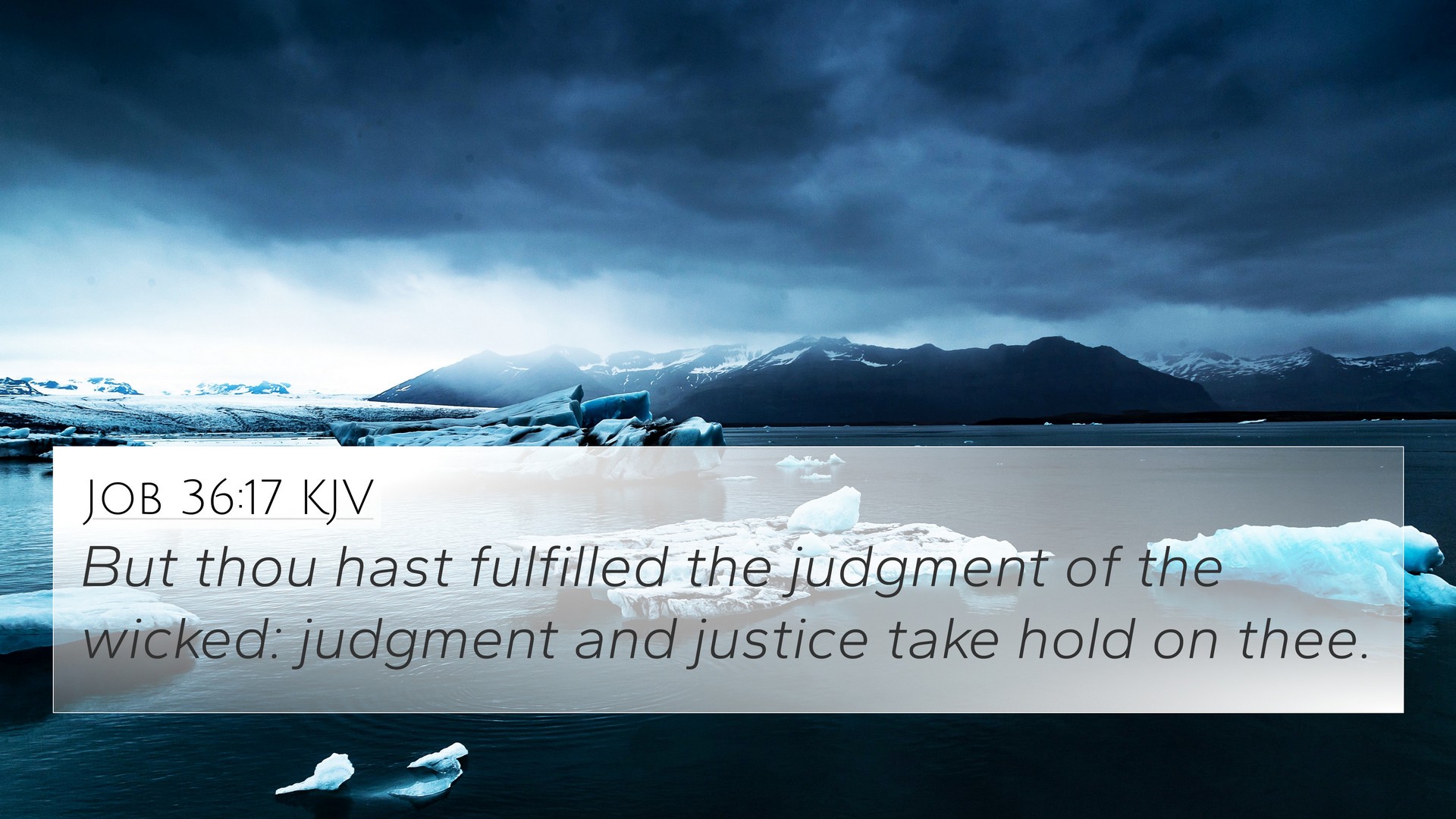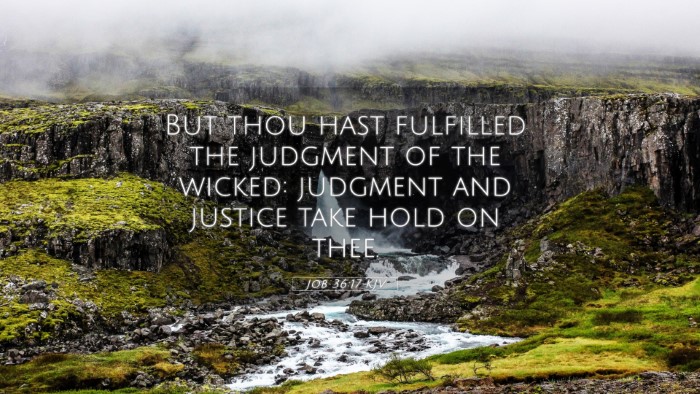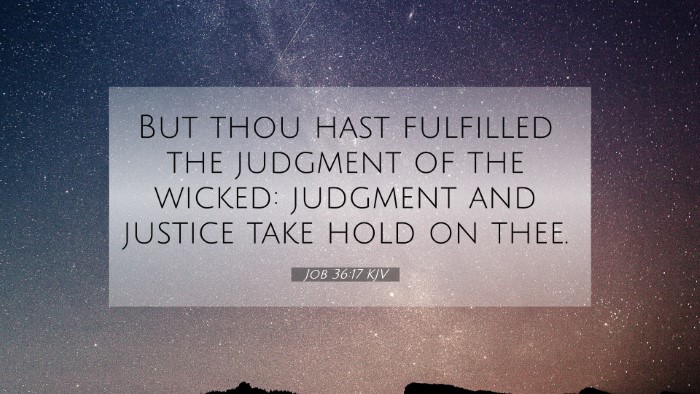Understanding Job 36:17
Job 36:17 states: "But you are filled with the judgment due to the wicked; judgment and justice take hold on you." This verse is part of Elihu's discourse, where he emphasizes God's justice and the moral order that governs the universe.
Overview of the Verse
The essence of Job 36:17 revolves around the theme of divine judgment, particularly how human actions align with divine principles. Elihu, speaking here, is addressing Job's complaints about his suffering and reaffirming the righteousness of God's judgments.
Interpretation of Job 36:17
Various commentaries provide insights into the meaning of this verse:
-
Matthew Henry:
Henry highlights that this verse contrasts the just character of God with the wrongs committed by people. He suggests that being filled with judgment implies that the wicked have invited divine justice upon themselves, emphasizing God's ability to administer justice fairly.
-
Albert Barnes:
Barnes notes that the phrase "filled with the judgment due to the wicked" suggests that Job’s own accusations against God reflect a misunderstanding of how divine justice operates. Barnes emphasizes that proper judgment and justice must hold sway in the face of human wrongdoing.
-
Adam Clarke:
Clarke explores the notion of "judgment" as a critical aspect of God's interaction with humanity, where divine justice is both certain and inevitable. He points out how this verse aligns with broader themes in the Book of Job concerning suffering and retribution.
Thematic Connections
The themes illustrated in Job 36:17 create a dialogue with various Biblical texts. Below are several related verses that reinforce the message of divine judgment:
- Psalm 7:11: "God is a righteous judge, and a God who feels indignation every day." This verse stresses God's inherent justice, akin to Elihu’s remarks.
- Romans 2:6: "He will repay each one according to his works." Paul echoes the idea that God’s judgments are based on the actions of individuals.
- Proverbs 21:15: "When justice is done, it is a joy to the righteous but terror to evildoers." This acknowledges the duality of divine justice as seen in Job 36:17.
- Isaiah 30:18: "Therefore the LORD waits to be gracious to you, and therefore he exalts himself to show mercy to you." This verse connects with God’s long-suffering nature amid judgment.
- Revelation 20:12: "And I saw the dead, great and small, standing before the throne, and books were opened." This reinforces the finality and severity of divine judgment.
- Galatians 6:7: "Do not be deceived: God is not mocked, for whatever one sows, that will he also reap." This principle of sowing and reaping is integral to understanding divine judgment.
- Matthew 12:36: "I tell you, on the day of judgment people will give account for every careless word they speak." Here, Jesus underscores the accountability we hold before God.
The Importance of Cross-Referencing Biblical Texts
Understanding Job 36:17 involves making connections between various scripture passages. Cross-referencing allows for a deeper analysis and comprehension of God's justice. It is essential for:
- Tools for Bible Cross-Referencing: Utilizing resources such as a Bible concordance can enhance one’s study of interconnected verses.
- Comprehensive Bible Cross-Reference Materials: Engaging with various Bible study aids can provide extensive insights into the themes present in scriptures.
- Cross-Reference Bible Study: Employing structured methods can yield profound revelations about the nature of God’s judgment and righteousness.
Conclusion
Job 36:17 teaches about the inevitable truth of divine judgment, presenting a significant theological point that resonates through multiple scriptures. Understanding the connections between Bible verses enhances our interpretation and highlights God's consistent character as a righteous judge. Engaging with these themes invites believers to confront their own moral responsibilities in light of God's justice.
Final Thoughts
By examining Job 36:17 alongside related verses, one gains insight not only into Elihu's perspective on suffering but also into the broader biblical narrative regarding justice, accountability, and God’s nature. This inter-Biblical dialogue enriches the understanding of scripture as a coherent whole, reflecting the consistent and fair character of God throughout the ages.








